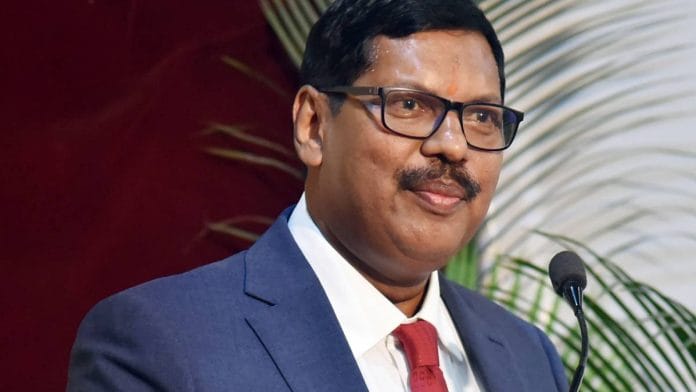New Delhi: Justice B.R. Gavai – one of the senior-most judges of the Supreme Court – last weekend spoke out openly against canvassing done by high court judges to secure their elevation in the apex court.
He is the first sitting top court judge to have publicly addressed this issue which, in his view, undermines the “principle of judicial discipline”.
In line to become the Chief Justice of India (CJI) in May 2025, Justice Gavai is a member of the five-judge collegium of the top court that chooses suitable judges from high courts for elevation to the SC. He will have a six-month tenure as CJI.
Justice Gavai was speaking at a seminar at the judicial academy in Kolkata Saturday when he emphasised the importance of integrity and judicial discipline.
The judge also touched upon other lapses found among judges, such as failure to adhere to punctuality and efficiency in their duties. He pointed out that judges do not sit in court on time, fail to pronounce judgements within a fixed timeframe and mistreat lawyers.
“Some of the judges in some of the high courts do not sit on time. It is shocking to know that some of the judges, though the court timings are 10.30 am, sit at 11.30 am and get up at 12.30 pm, though court timings are up to 1.30 pm (in the first half session). It is more shocking to know that some of the judges do not sit in the second half,” he said.
He then expressed concern over the growing unspoken trend of high court judges reaching out to members of the SC collegium for their elevation.
“Some of the judges even go to the extent of canvassing their candidature for elevation to the Supreme Court. They try to prove their case as to how they are more suitable for elevation to the Supreme Court than the other judges of the said (high) court,” he said.
Strongly disapproving of this conduct, Justice Gavai maintained that such behaviour harms the reputation of the institution and also undermines the principle of judicial discipline.
He asserted that the collegium took decisions on elevations on the basis of a database that contains information on all the candidates who are in the zone of consideration for elevation. In addition to that, the collegium members also receive inputs from various sources, which include opinions from consultee judges – sitting SC judges who belong to the particular high court from where the candidate is being considered.
Consultee judges’ feedback is sought since they have had an occasion to work with the judge in line for elevation.
“In my view, such canvassing by judges is injurious to the principle of discipline that we should maintain,” Justice Gavai added.
Focusing on the common man’s belief in the judiciary, the judge lamented the inordinate delay in writing judgements which, he said, leads to “eroding the confidence of the public in the judiciary.”
“It is our duty to enhance the faith that this common citizen has in our institution and to ensure that we perform in a manner which not only enhances this faith but also the dignity of this great institution to which we owe everything,” the judge said.
Also Read: After SC’s final word, Article 370 is no longer a battleground. But J&K election…
‘Courts ought to play pivotal role in resolving Centre-State disputes’
Justice Gavai weighed in on the necessity of federal contestation (healthy contest between states) for India’s development, pointing out that the Constitution gives room for both – cooperative and uncooperative federalism, where different federal units can engage in both collaboration and contestation.
He explained that both collaboration and contestation further the principles of democracy, allowing different federal units to engage in a productive manner. While cooperative federalism is essential for maintaining India’s unity and integrity, competition, contestation or friction between different federal states is equally crucial for the country’s overall development.
Courts, he said, in such a scenario, ought to play a pivotal role in resolving disputes between the Centre and States.
Though the Constitution provides for a detailed framework for distribution of powers between the Union and States, by providing a list for each jurisdiction, the court, he said, plays a significant role in interpreting those powers, which should be done to uphold the Constitution and maintain a balance of power between the different levels of government.
Justice Gavai further stressed on the judiciary’s role to uphold constitutional values over social or political morality. “As a custodian of the Constitution, a judge has to consciously safeguard constitutional morality,” he said, while delving into the Supreme Court judgement that struck down the penal code that criminalised homosexuality.
At the same time, he reckoned that judges cannot venture into the policymaking arena, which is earmarked to the executive and legislature.
Judges can act as catalysts, he reminded, but have to work within institutional limitations, like the court did in the same-sex marriage case where it refused to pave the way for homosexual unions while holding that the same would fall within the domain of the legislature.
(Edited by Nida Fatima Siddiqui)
Also Read: Justice Nagarathna says appointing women to senior judicial posts can break gender stereotypes






